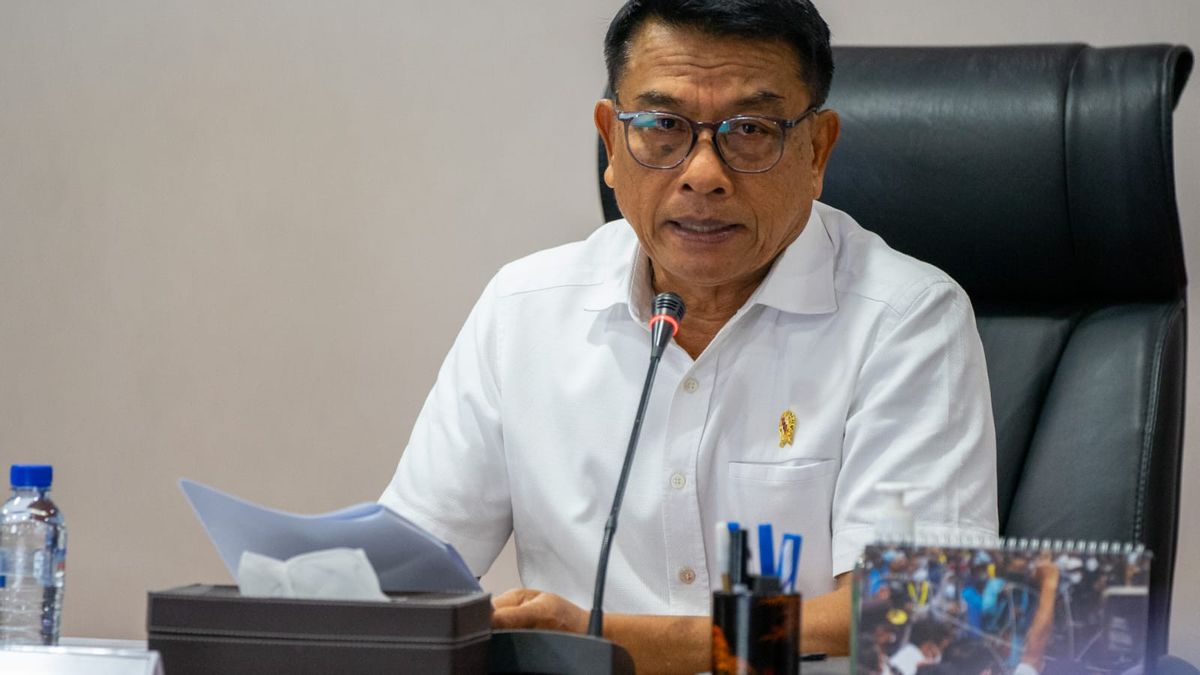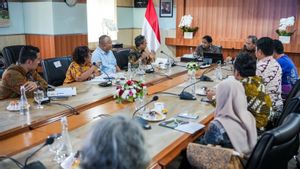Presidential Chief of Staff Dr. Moeldoko emphasized that the Indonesian economy is able to survive when the world is threatened with recession. Indonesia's economy will still grow, even though its growth slows down. He conveyed this to dispel the assumption from various parties that Indonesia would experience a recession in 2023.
People don't need to worry. Our economy continues to grow even though the trend is slow down. So those who have a lot of money please spend the money, because it will keep our economy moving," said Moeldoko, at the Bina Graha building, Jakarta, Friday, November 4.
Moeldoko said President Joko Widodo (Jokowi) warned about the threat of a global recession not to scare. But more on calls for Indonesia to be aware of global market conditions. Where there has been an economic slowdown in developed countries, as well as the threat of an energy, food and global financial crisis due to rising geopolitical tensions.
This condition, he continued, had an impact on Indonesia. The slowdown in the growth of developed countries has reduced demand for export goods. As a result, Indonesia's export and import value has decreased, and in turn, the value of the trade surplus could decrease.
"The impact on our economy certainly exists, but not too big. Because so far our main component of GDP is household consumption (domestic). We must remain optimistic and continue to be vigilant," said Moeldoko.
According to the man born in Kediri, at a macro level the government and the monetary authority have anticipated through policies, both fiscal and monetary. Namely, Bank Indonesia is carrying out its duties to reduce rising inflation through various instruments. Meanwhile, the central and regional governments, he added, are working hard to control prices by strengthening social assistance schemes so that they can be a cushion for the community, especially the lower middle class.
For information, Indonesia's economy grew 5.4 percent in the second quarter, and is projected to be above 5.5 percent in the third quarter. Indicators in terms of consumption such as retail sales index and consumer confidence index, as well as in terms of production such as Manufacturing PMI, also still provide positive signals.
From the external side, the trade balance is in surplus for 29 consecutive months. As of the end of September 2022, the balance of payments for the surplus amounted to USD39.9 billion. Meanwhile, foreign exchange reserves are at the level of USD130.8 billion, and can finance 5.7 months of imports, and pay off government foreign debt.
As for inflation, as of October, it fell to the level of 5.7 percent (year on year) from the previous 5.9 percent (year on year). On a monthly basis, there was a deflation of 0.11 percent, mainly from deflation in the food and beverage sector of 0.97 percent. This shows that despite the subsidized fuel price adjustment, the prices of the basic needs of the community are still under control.
The 2013-2015 TNI Commander also revealed that in 2023, the APBN will act as a shock absorber, and be used as effectively as possible to control inflation, maintain purchasing power, and maintain the momentum of Indonesia's economic recovery. "Starting 2023, we will return to a maximum budget deficit of three percent to GDP, as before the COVID-19 pandemic," explained Moeldoko.
The English, Chinese, Japanese, Arabic, and French versions are automatically generated by the AI. So there may still be inaccuracies in translating, please always see Indonesian as our main language. (system supported by DigitalSiber.id)













